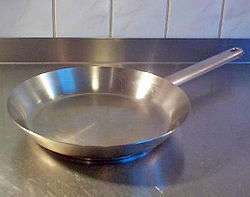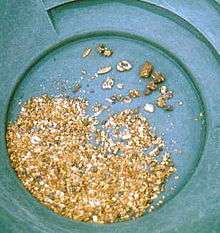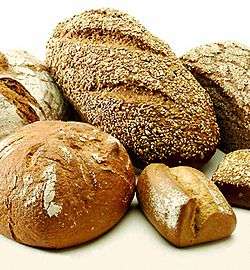Definify.com
Webster 1913 Edition
Pan
Pan
,Pan
,Pan
,Pan
,Pan
,Pan
,Webster 1828 Edition
Pan
PAN
, n.PAN
,Definition 2026
Pan
Pan
Translingual
Etymology
1816, in Lehrbuch der Naturgeschichte, by Lorenz Oken. From Ancient Greek Πάν (Pán).
Proper noun
Pan m
- A taxonomic genus within the family Hominidae – the chimpanzees, native to central Africa.
Hypernyms
- (genus): Mammalia - class; Trechnotheria - subclass; Zatheria - infraclass; Theria - supercohort; Eutheria - infraclass; Epitheria - magnorder; Euarchontoglires - superorder; Primates - order; Haplorrhini - suborder; Simiiformes - infraorder; Catarrhini - parvorder; Hominoidea - superfamily; Hominidae - family; Homininae - subfamily; Hominini - tribe; Panina - subtribe
Hyponyms
- (genus): Pan paniscus, Pan troglodytes - species
English
Proper noun
Pan
- (Greek mythology) Greek god of nature, often visualized as half goat and half man playing pipes. His Roman counterpart is Faunus.
- (astronomy) A moon of the planet Saturn.
Derived terms
Translations
Anagrams
pan
pan
English
Noun
pan (plural pans)

- A wide, flat receptacle used around the house, especially for cooking
- The contents of such a receptacle
- A cylindrical receptacle about as tall as it is wide, with one long handle, usually made of metal, used for cooking in the home
- (Ireland) A deep plastic receptacle, used for washing or food preparation. A basin.
- A wide receptacle in which gold grains are separated from gravel by washing the contents with water
- (geography) a specific type of lake, natural depression or basin. They are sometimes associated with desert areas
- Strong adverse criticism
- A loaf of bread
- (obsolete) The chamber pot in a close stool; (now) the base of a toilet, consisting of the bowl and its support.
- (slang) A human face, a mug.
- 1953, Raymond Chandler, The Long Goodbye, Penguin 2010, page 103:
- This was the kind of operator who would tell you to be there at nine sharp and if you weren't sitting quietly with a pleased smile on your pan when he floated in two hours later on a double Gibson, he would have a paroxysm of outraged executive ability […].
- 1953, Raymond Chandler, The Long Goodbye, Penguin 2010, page 103:
- (roofing) The bottom flat part of a roofing panel that is between the ribs of the panel
- A closed vessel for boiling or evaporating as part of manufacture; a vacuum pan.
- The part of a flintlock that holds the priming.
- The skull, considered as a vessel containing the brain; the brain-pan.
- (Can we find and add a quotation of Chaucer to this entry?)
- (carpentry) A recess, or bed, for the leaf of a hinge.
- The hard stratum of earth that lies below the soil; hardpan.
Synonyms
- (flat receptacle): frying pan, skillet, cookie sheet, tin
- (tall receptacle): saucepan
- (chamber pot): See Wikisaurus:chamber pot
- (toilet): See Wikisaurus:toilet
Derived terms
|
Translations
|
|
Verb

pan (third-person singular simple present pans, present participle panning, simple past and past participle panned)
- (transitive) To wash in a pan (of earth, sand etc. when searching for gold).
- General Sherman
- We […] witnessed the process of cleaning up and panning out, which is the last process of separating the pure gold from the fine dirt and black sand.
- General Sherman
- (transitive) To disparage; to belittle; to put down; to criticise severely.
- 2013, Catwoman (film), English Wikipedia:
- Catwoman was heavily panned by critics and holds a 9% approval rating on Rotten Tomatoes based on 179 reviews with the consensus stating: "Halle Berry is the lone bright spot, but even she can't save this laughable action thriller".
- 2013, Catwoman (film), English Wikipedia:
- (intransitive) With "out" (to pan out), to turn out well; to be successful.
- (transitive, informal, of a contest) To beat one's opposition convincingly.
- (informal) To criticize harshly a work (like a book, movie, etc.)
Coordinate terms
- (wash in mining): sluice
See also
- (place to pan for gold): lavatory
Translations
|
Etymology 2
From a clipped form of panorama.
Verb
pan (third-person singular simple present pans, present participle panning, simple past and past participle panned)
- to turn horizontally (of a camera etc.)
- (intransitive, photography) to move the camera lens angle while continuing to expose the film, enabling a contiguous view and enrichment of context. In still-photography large-group portraits the film usually remains on a horizontal fixed plane as the lens and/or the film holder moves to expose the film laterally. The resulting image may extend a short distance laterally or as great as 360 degrees from the point where the film first began to be exposed.
- (audio) To spread a sound signal into a new stereo or multichannel sound field, typically giving the impression that it is moving across the sound stage.
Coordinate terms
Derived terms
See also
Translations
Etymology 3
Noun
pan (uncountable)
- Alternative form of paan
Etymology 4
Compare French pan (“skirt, lappet”), Latin pannus (“a cloth, rag”).
Verb
pan (third-person singular simple present pans, present participle panning, simple past and past participle panned)
- To join or fit together; to unite.
- (Can we find and add a quotation of Halliwell to this entry?)
Etymology 5
Old English. See pane.
Noun
pan (plural pans)
- A part; a portion.
- (fortifications) The distance comprised between the angle of the epaule and the flanked angle.
- A leaf of gold or silver.
Etymology 6
From pansexual by shortening.
Adjective
pan (not comparable)
- (slang) Pansexual.
- 2012, Anna Waugh, "Texas got a pansexual legislator", Dallas Voice, Volume 29, Issue 33, 28 December 2012, page 9:
- When she publicly acknowledged that she is pan, it educated citizens near and far on what that sexuality meant and the importance of being proud of who you are.
- 2013, Alejandra Rodriguez, "Isn't That Bisexual?", Outwrite, Fall 2013, page 7:
- Another anonymous pansexual disclosed, "Sometimes I feel really left out because I'm pan. […]
- 2013, Megan Hertner, "Understanding Gender and Sexuality", Grapevine (Huron University College), December 2013, page 19:
- A similar experience is shared by individuals who identify their sexuality as pan, bi or queer.
- For more examples of usage of this term, see Citations:pan.
- 2012, Anna Waugh, "Texas got a pansexual legislator", Dallas Voice, Volume 29, Issue 33, 28 December 2012, page 9:
Anagrams
Cebuano
Etymology
From Spanish pan (“bread”), from Latin pānis, from Proto-Indo-European *peh₂- (“to feed, to graze”).
Noun
pan
Czech
Noun
pan
- Alternative form of pán
Usage notes
- This is the form used when followed by a name, title, occupation etc.
- pan Novák
- Mr Novák
- Pane předsedo, dámy a pánové...
- Mr Chairman, ladies and gentlemen...
- Vítejte, pane rytíři.
- Welcome, Sir Knight.
- Kdy přijde pan doktor, sestřičko?
- When will the doctor come, nurse?
- pan Novák
Dutch
Pronunciation
- Rhymes: -ɑn
Etymology
From Proto-Germanic *pannōn. Cognate with English pan, German Pfanne.
Noun
pan f (plural pannen, diminutive pannetje n)
- A pan, especially for cooking.
- (Netherlands) pot
- A pan
Synonyms
Derived terms
- (frying pan): braadpan
- (grilling pan): grillpan
- (cooking pan): kookpan
- (sauce pan): sauspan
- (soup pan): soeppan
- (snacks pan): hapjespan
- (deep frying pan, fries pan): frituurpan
Related terms
Anagrams
French
Pronunciation
- IPA(key): /pɑ̃/
Etymology 1
Noun
pan m (plural pans)
Etymology 2
Onomatopoeic.
Interjection
pan
Anagrams
Galician
Etymology
From Old Portuguese pan, from Latin pānis, pānem.
Noun
pan m (plural pans)
Related terms
Mandarin
Romanization
pan
- Nonstandard spelling of pān.
- Nonstandard spelling of pán.
- Nonstandard spelling of pǎn.
- Nonstandard spelling of pàn.
Usage notes
- English transcriptions of Mandarin speech often fail to distinguish between the critical tonal differences employed in the Mandarin language, using words such as this one without the appropriate indication of tone.
Occitan
Etymology
From Old Provençal pan, from Latin pānis, pānem.
Noun
pan m (plural pans)
Related terms
Old French
Etymology
Noun
pan m (oblique plural pans, nominative singular pans, nominative plural pan)
- bit; piece; part
- (specifically) a piece of armor
- Et de l'hauberc li runpirent les pans
- They broke parts parts of his armor
- Et de l'hauberc li runpirent les pans
References
- (fr) Godefroy, Frédéric, Dictionnaire de l'ancienne langue française et de tous ses dialectes du IXe au XVe siècle (1881) (pan)
Old Portuguese
Etymology
From Latin pānem, accusative singular form of pānis.
Pronunciation
- IPA(key): /ˈpã/
Noun
pan m (plural pães)
- bread
- 13th century, attributed to Alfonso X of Castile, Cantigas de Santa Maria, E codex, cantiga 95 (facsimile):
- Aquel ſantome […] nunca carne comia nen pan nen bocado / ſe non q[ua]ndo con cĩjſa Era Meſturado
- That holy man […] never ate a mouthful of meat nor bread / except when it was mixed with ashes
- Aquel ſantome […] nunca carne comia nen pan nen bocado / ſe non q[ua]ndo con cĩjſa Era Meſturado
- 13th century, attributed to Alfonso X of Castile, Cantigas de Santa Maria, E codex, cantiga 95 (facsimile):
Descendants
|
Polish
Etymology
XIV c. Unknown etymology. West Slavic word. Possibly from Old Saxon fan (“from noble family”). Cognate to Old Czech hpan, modern Czech and Slovak pan and pán, Sorbian pan, Ukrainian пан (pan), Belarusian пан (pan).
Pronunciation
- IPA(key): /pan̪/
Noun
pan m pers
Declension
Pronoun
pan
- you (polite second person m-personal nominative, it takes verbs as third-person sg form)
- Czy mógłby pan zamknąć drzwi? – Could you close the door?
Declension
See also
Spanish

Etymology
From Latin pānis, pānem (compare Catalan pa, French pain, Galician pan, Italian pane, Portuguese pão, Romanian pâine), possibly from Proto-Indo-European *peh₂- (“to feed, to graze”).
Pronunciation
- IPA(key): /pan/
- Rhymes: -an
Noun
pan m (plural panes)
Derived terms
|
|
|